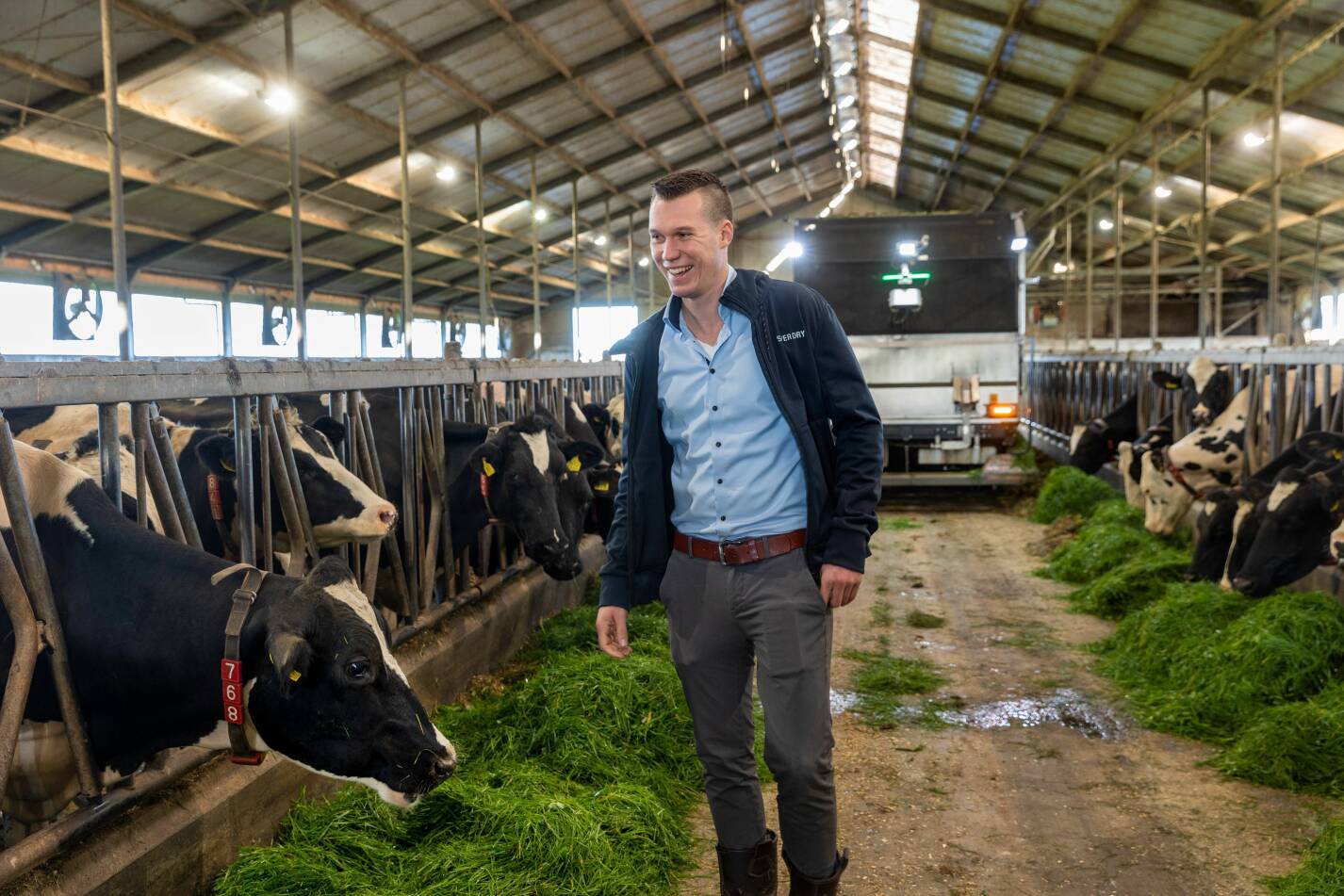The Lely Farm of the Future
Korstiaan Blokland, Director Innovations at Lely


Passion for dairy farming
When it comes to his own job at Lely, Korstiaan is also enthusiastic: 'Lely is a special workplace for me because we can really focus on improving the life of the farmer in 7 to 10 years. The impact that the milking robot has had over the past 35 years on improving animal and, above all, farmer welfare is enormous. The products produced by Lely Technologies are all of great value to the farmer. That assignment, the freedom and that shared passion for dairy farming make Lely Technologies such a special place to work for me.'
Farmer in control
Realising the Farm of the Future involves a transition from a product approach to a product-as-a-service approach. Farmers don't just purchase Lely robots, they purchase a desired result: a more profitable business, a more sustainable operation and a better life. Korstiaan emphasises that the farmer stays in control. ‘The farmer decides how to utilise the robots, we innovate to achieve the best possible results. That continues to be our focus towards 2035/2040.’
Removing the burden of management
Korstiaan continues: ‘But it's not as simple as installing a robot. Robots require configuration, optimisation, planned and unplanned maintenance. As dairy farms grow in size, a trend that's already visible around the world, and more processes are automated, the management of robots could put undue strain on farmers. The Lely Farm of the Future takes this management off their plate. It's equipped with the technology to signal opportunities to improve the robots’ performance, detect problems and organise solutions to those problems. The result is peace of mind, which is key to enjoyable farming.’
The role of automation and robotisation
Korstiaan Blokland, Director Innovations at Lely and co-owner of Blokland Dairy, explains how his team is working towards an enjoyable future in farming: ‘We believe strongly in the power of automation and robotisation to farm better and smarter. It's not simply about automating repetitive tasks, but about improving the way those tasks are executed. Our robots perform the same task, again and again. They are intelligent and able to communicate with other robots. The result is a dairy farm that runs like clockwork. That's good for business and for the farmer.’
On the Farm of the Future, many of the day-to-day operations are automated. Lely robots continuously harvest fresh grass, deliver it as high-quality food to the cows, collect manure and turn that manure into fertilizer that is returned to the field. Meanwhile, cows enter the milking robot as they please. By addressing some of the biggest challenges in dairy farming today – rising costs, labour shortages and environmental legislation – automation is already having a positive impact on farmer satisfaction. But robots need management, too. Lely's Farm of the Future will ensure that management is taken care of, so farmers can enjoy life on and off the farm.
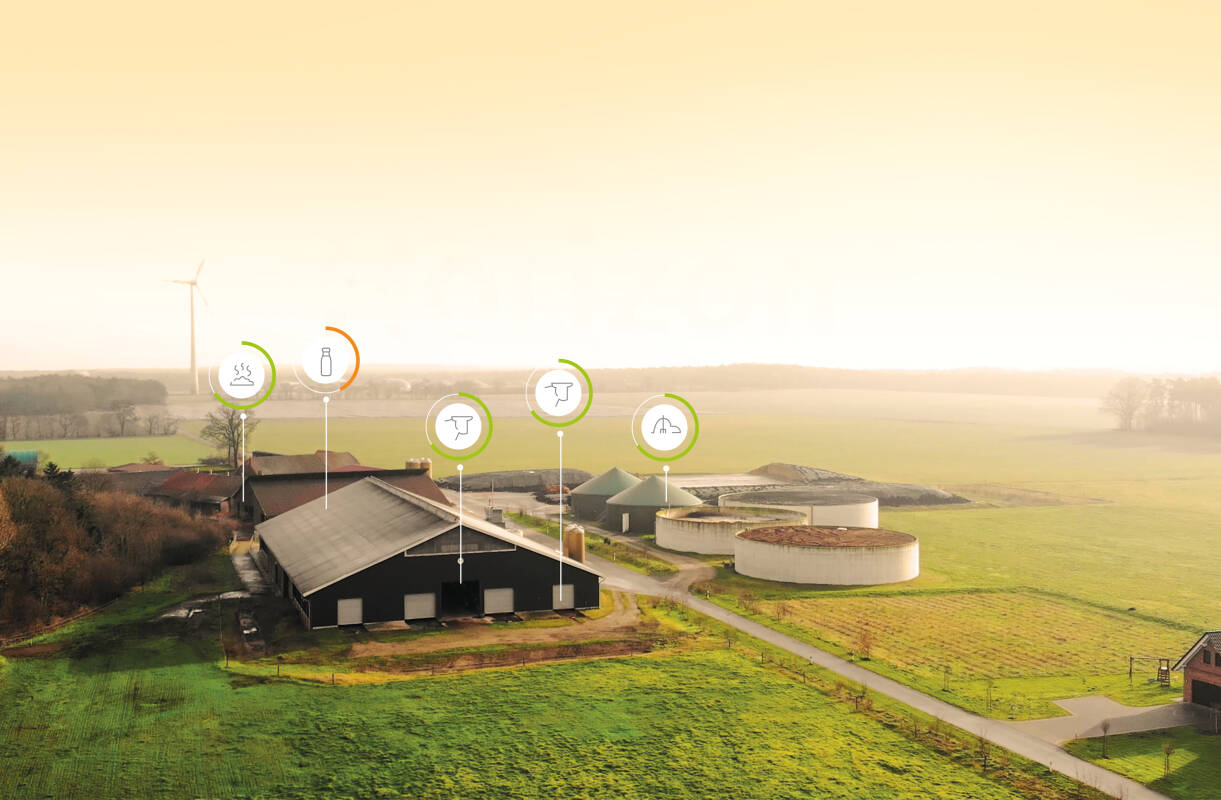
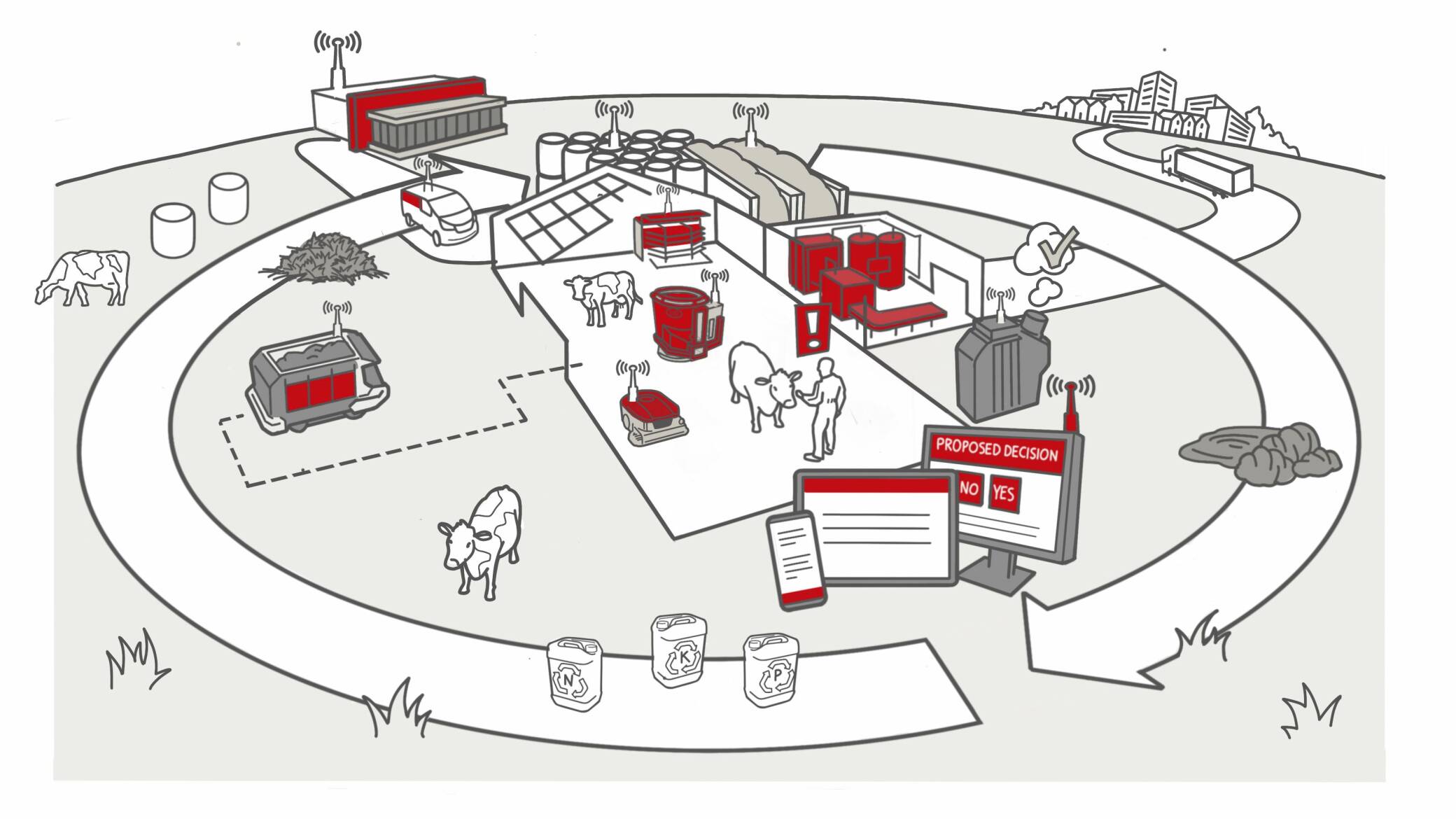
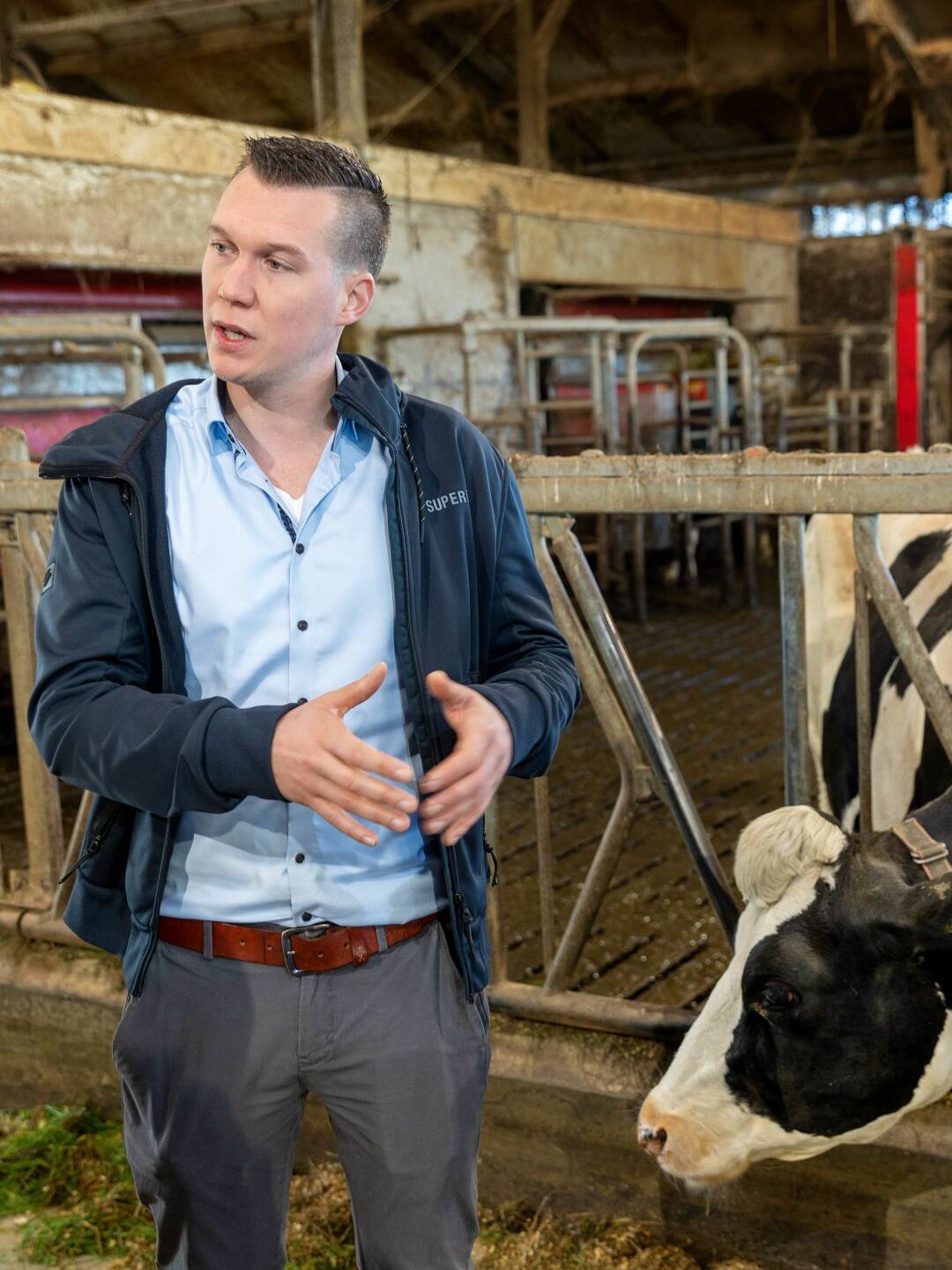
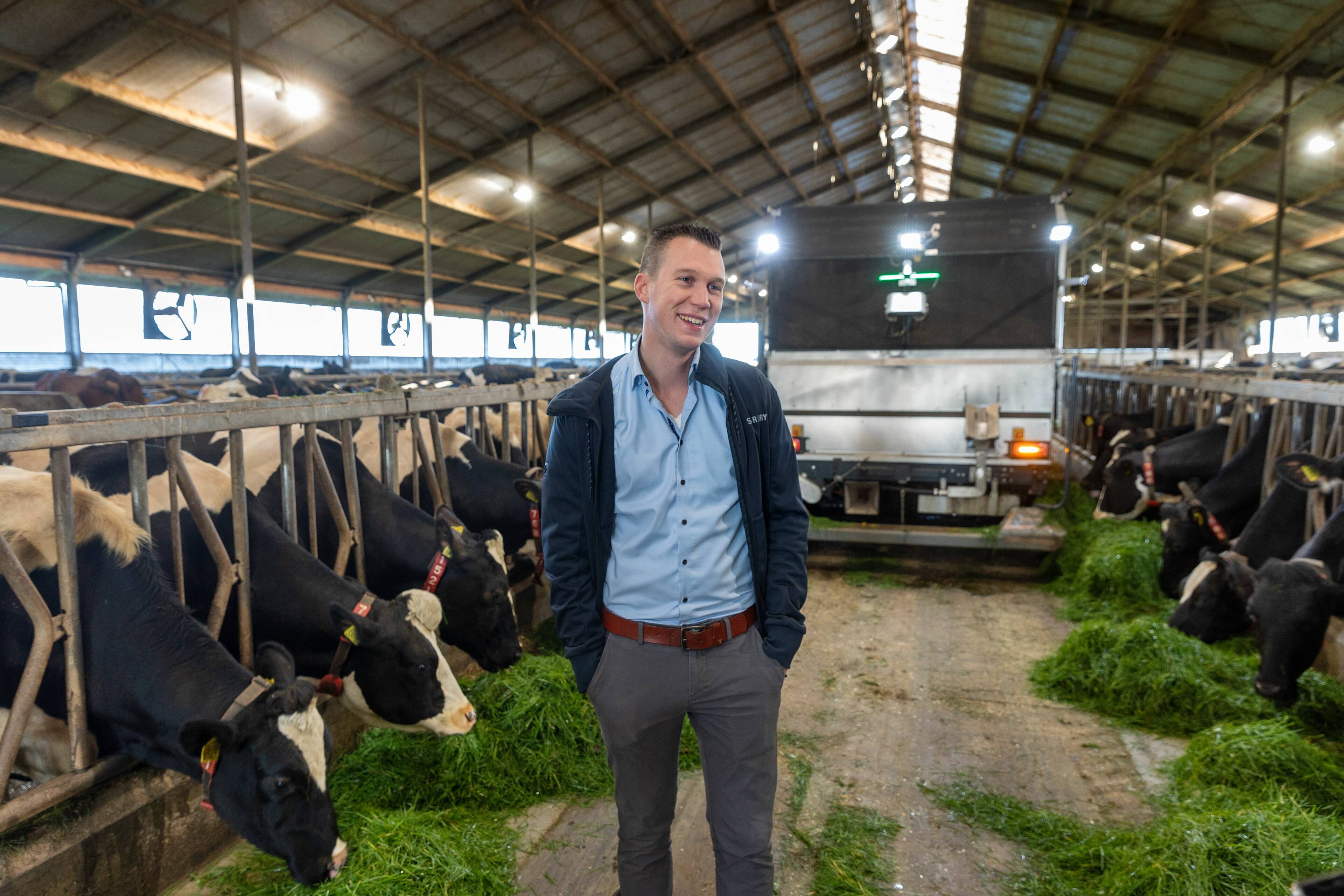
How innovation contributes to an enjoyable future in farming
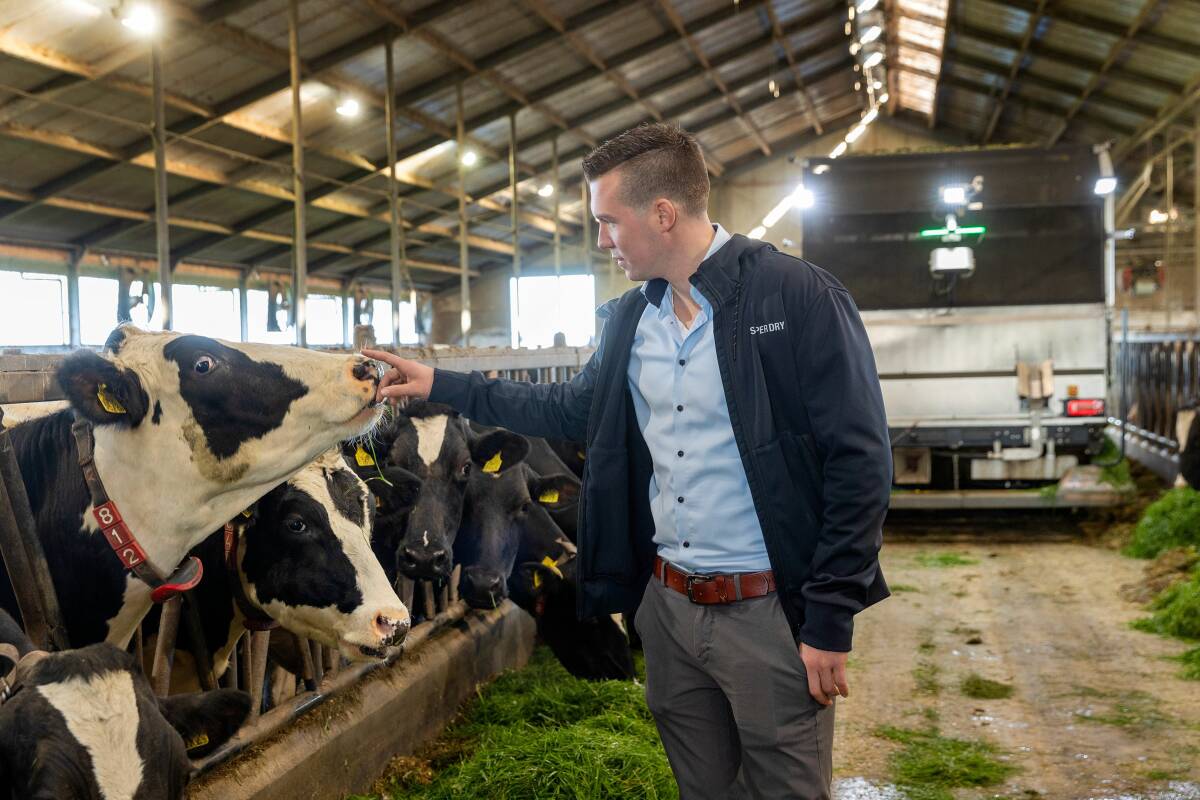
FUTURE FARM
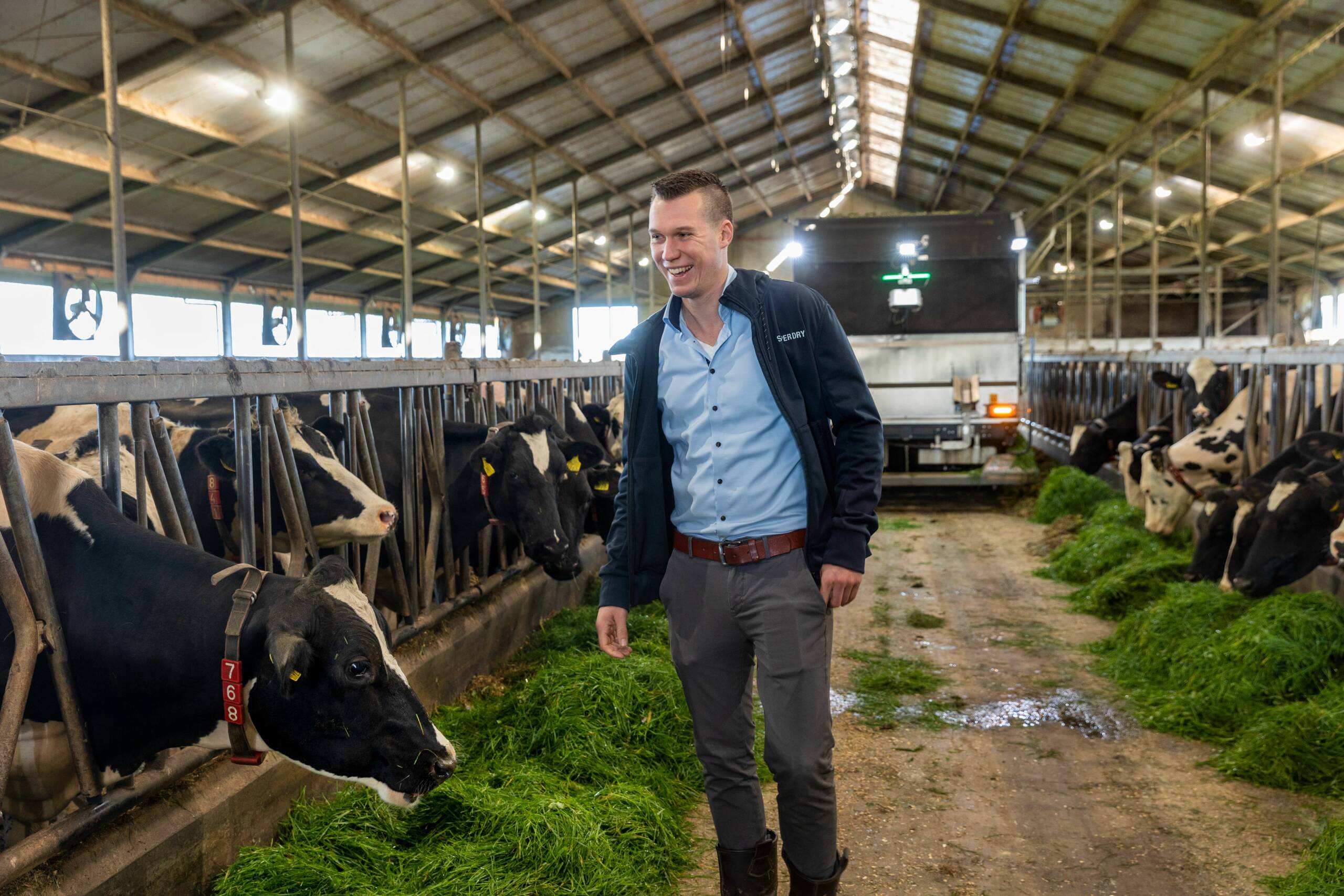

Passion for dairy farming
When it comes to his own job at Lely, Korstiaan is also enthusiastic: 'Lely is a special workplace for me because we can really focus on improving the life of the farmer in 7 to 10 years. The impact that the milking robot has had over the past 35 years on improving animal and, above all, farmer welfare is enormous. The products produced by Lely Technologies are all of great value to the farmer. That assignment, the freedom and that shared passion for dairy farming make Lely Technologies such a special place to work for me.'
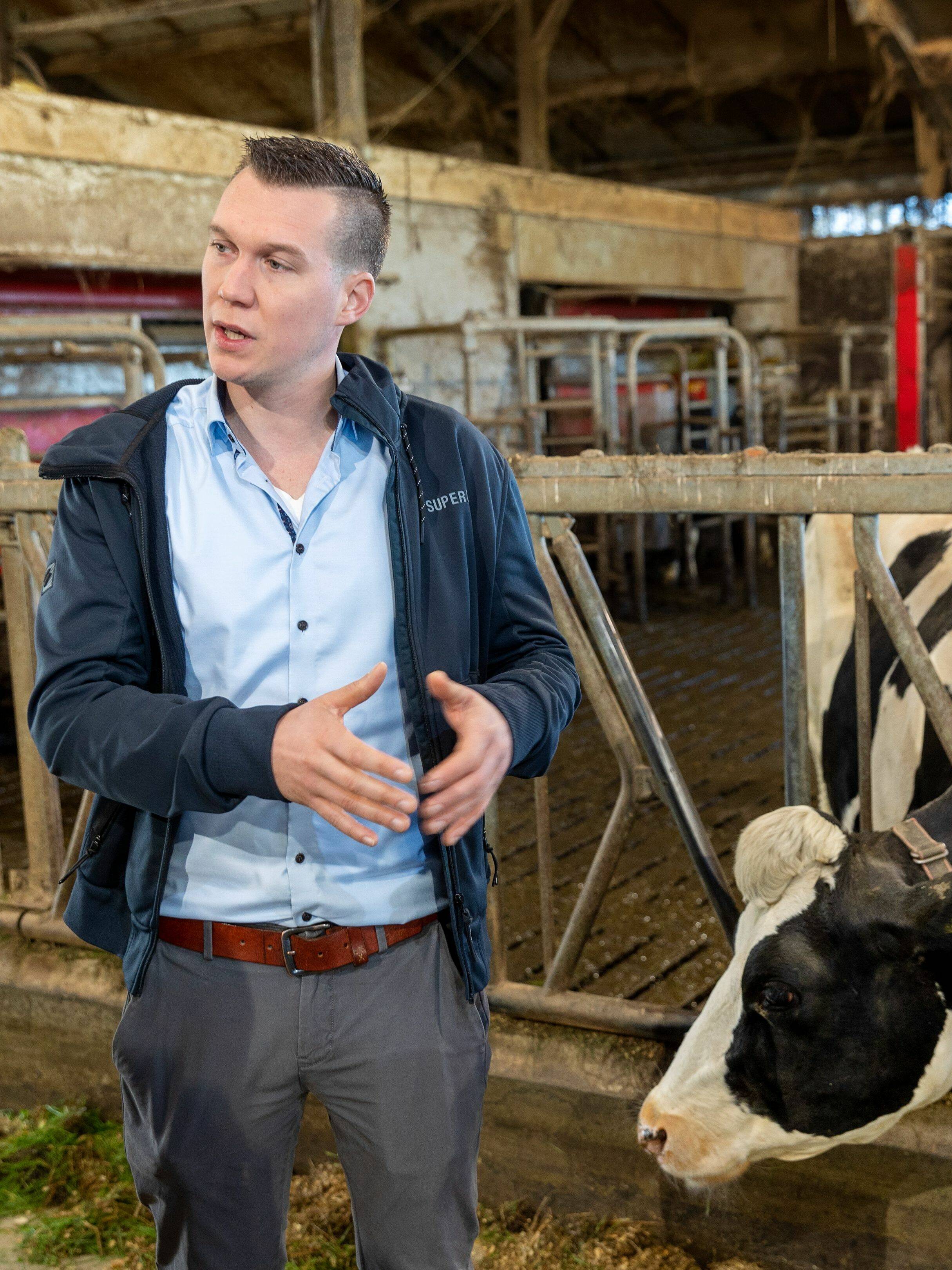
The Lely Farm of the Future
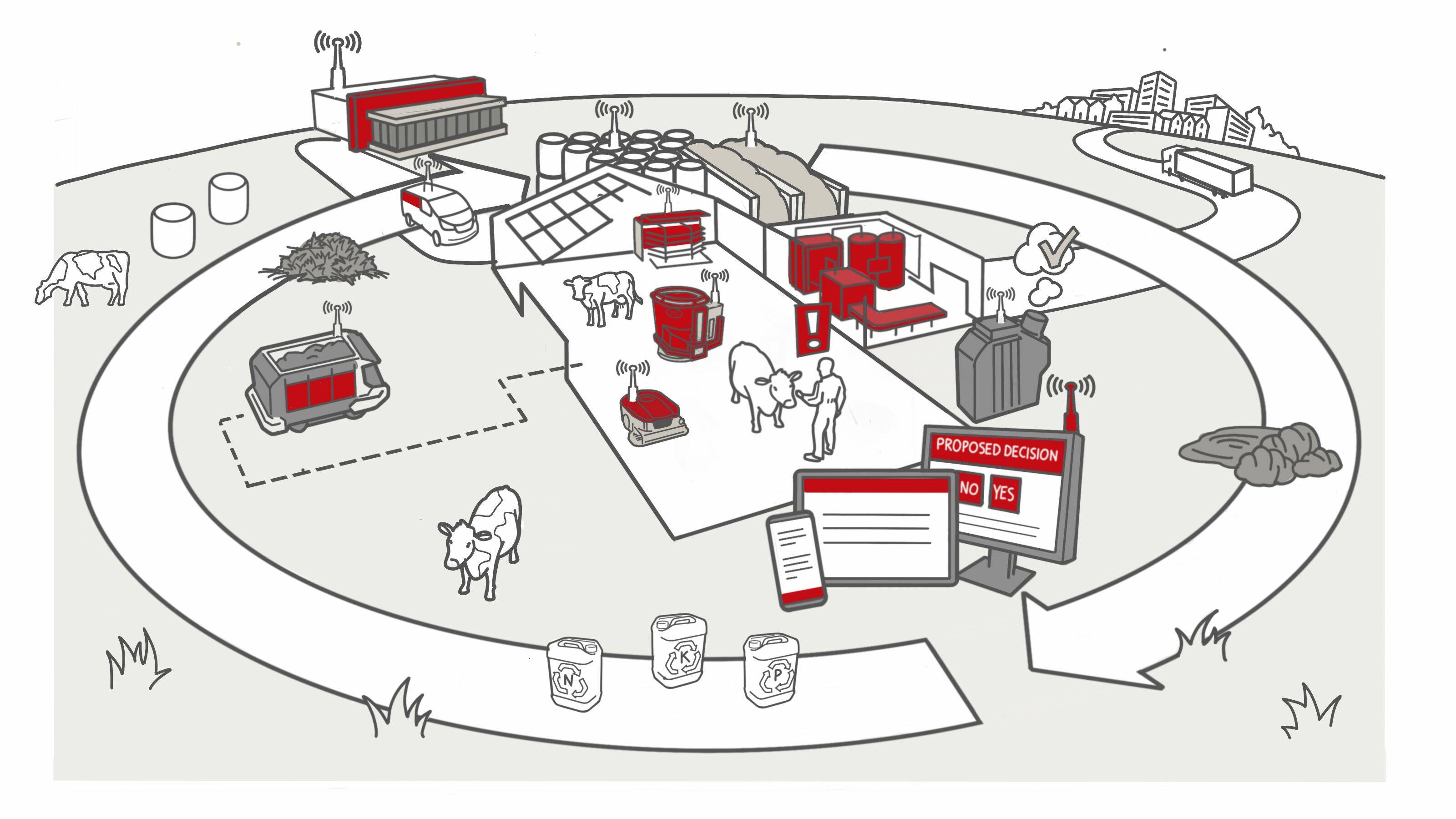
Farmer in control
Realising the Farm of the Future involves a transition from a product approach to a product-as-a-service approach. Farmers don't just purchase Lely robots, they purchase a desired result: a more profitable business, a more sustainable operation and a better life. Korstiaan emphasises that the farmer stays in control. ‘The farmer decides how to utilise the robots, we innovate to achieve the best possible results. That continues to be our focus towards 2035/2040.’
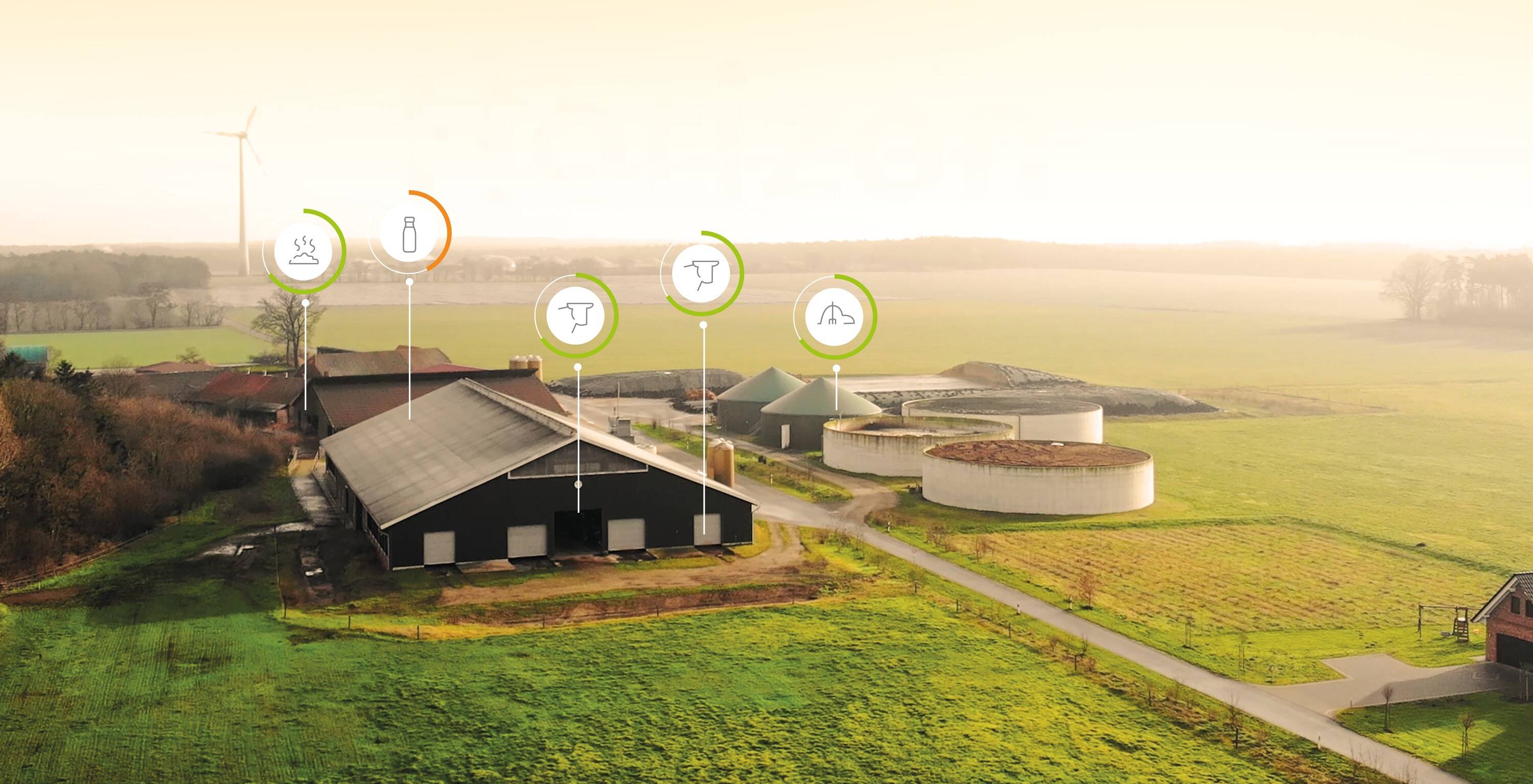
Removing the burden of management
Korstiaan continues: ‘But it's not as simple as installing a robot. Robots require configuration, optimisation, planned and unplanned maintenance. As dairy farms grow in size, a trend that's already visible around the world, and more processes are automated, the management of robots could put undue strain on farmers. The Lely Farm of the Future takes this management off their plate. It's equipped with the technology to signal opportunities to improve the robots’ performance, detect problems and organise solutions to those problems. The result is peace of mind, which is key to enjoyable farming.’
Korstiaan Blokland, Director Innovations at Lely
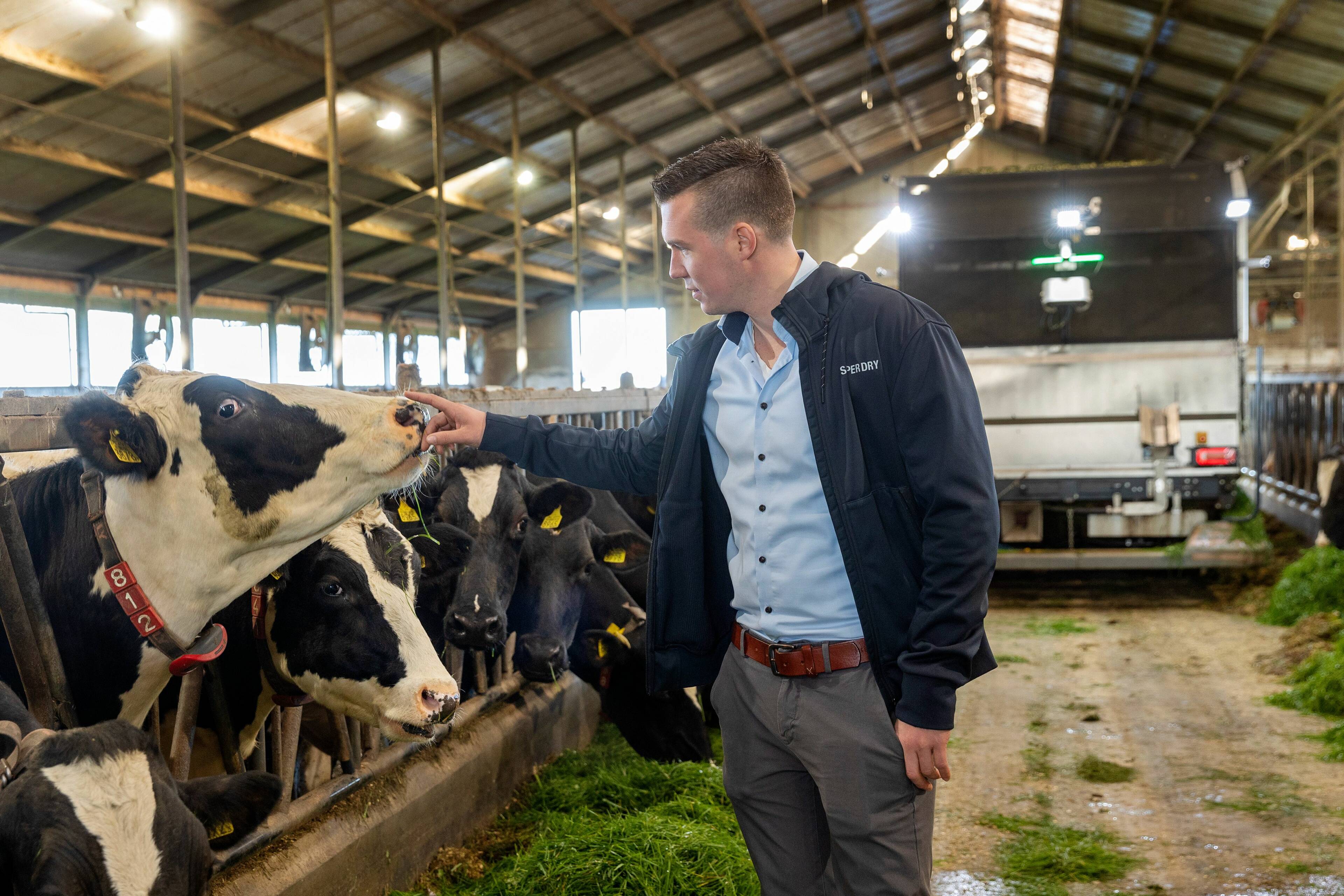
The role of automation and robotisation
Korstiaan Blokland, Director Innovations at Lely and co-owner of Blokland Dairy, explains how his team is working towards an enjoyable future in farming: ‘We believe strongly in the power of automation and robotisation to farm better and smarter. It's not simply about automating repetitive tasks, but about improving the way those tasks are executed. Our robots perform the same task, again and again. They are intelligent and able to communicate with other robots. The result is a dairy farm that runs like clockwork. That's good for business and for the farmer.’
On the Farm of the Future, many of the day-to-day operations are automated. Lely robots continuously harvest fresh grass, deliver it as high-quality food to the cows, collect manure and turn that manure into fertilizer that is returned to the field. Meanwhile, cows enter the milking robot as they please. By addressing some of the biggest challenges in dairy farming today – rising costs, labour shortages and environmental legislation – automation is already having a positive impact on farmer satisfaction. But robots need management, too. Lely's Farm of the Future will ensure that management is taken care of, so farmers can enjoy life on and off the farm.
How innovation contributes to an enjoyable future in farming
FUTURE FARM

